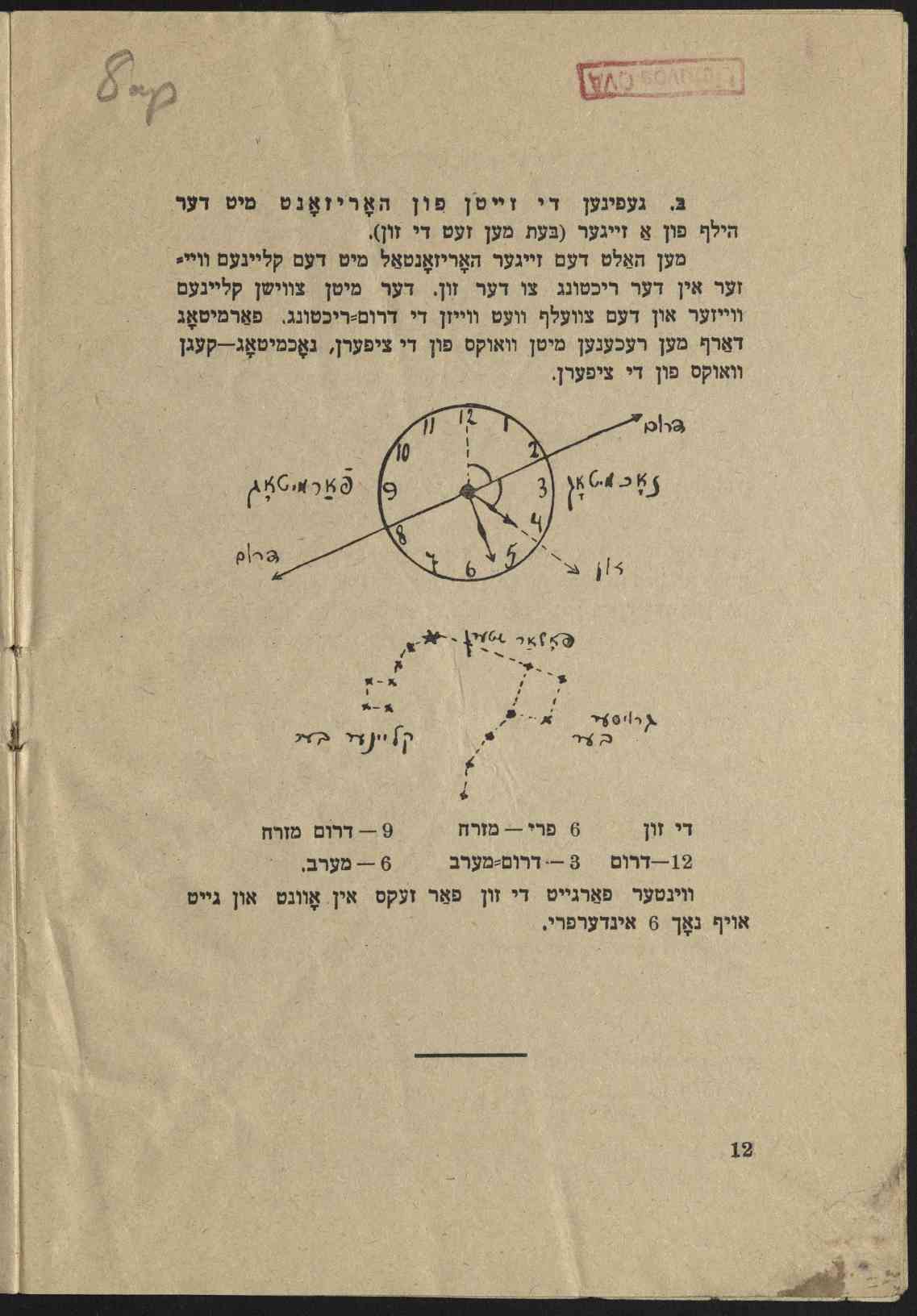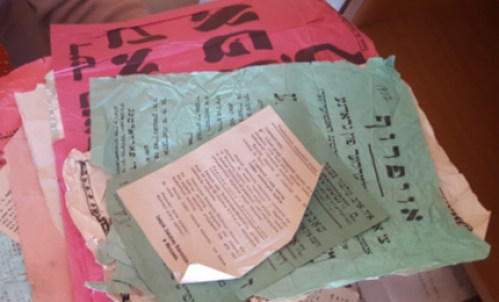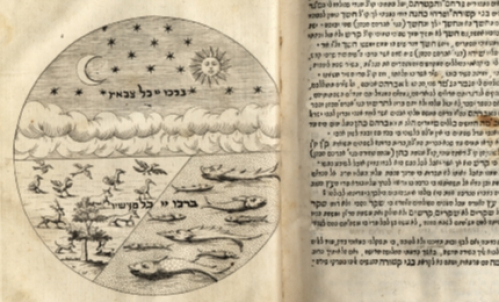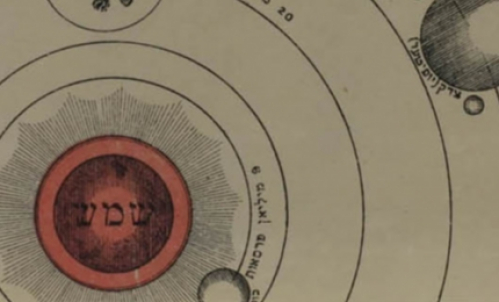Beware of Cows Who Chomp on Backpacks
by ROBERTA NEWMAN
It’s late summer and in many places in the world, children are returning home from summer camp. A hundred years ago in August, those children in Eastern Europe who were lucky enough to be able to attend summer camp, were also bidding their bunkmates farewell before returning to home and school. In fact, there were numerous organizations, that touted exposure to nature and the outdoors, and sports and fitness as essential elements of childhood development.
This 91-year-old Yiddish scouting manual offers instructions on how to conduct organized hikes. It was published in 1927 by the Jewish scouting organization, Di bin (The Bees), which had a close relationship with YIVO. Founded by Max Weinreich, YIVO’s director, Di bin was for children aged 8-17 and emphasized character-building through sports, nature activities, and the arts. It drew its membership mainly from the student body of the Yiddish-language school network in Vilna.
Hiking Instructions covers topics such as appropriate clothing and equipment, swimming safety, camping, and how to navigate by compass and the stars. It even covers what food would be good to bring on a hike:
Black bread, rusks from dried-out bread slices, butter in a hermetically sealed container, hard-boiled eggs, fruit, greens, cheese, a lemon. In the wintertime: sausage, chocolate.
The advice given on how to quench thirst would probably be seen as being at odds with present day recommendations:
When overheated, don’t drink cold water. The more you drink, the more you will want to drink. If you drink a lot, you will sweat more. It’s better to quench your thirst with fruit. Remember: if you breathe through your nose, you will be less thirsty.
There is a special warning related to camping out overnight in a barn in hay:
Backpacks must be hung up. It’s happened before that even a rucksack can go missing and first turn up again in the mouth of a cow!

The pamphlet was published in the very earliest days of Di bin’s existence. It was suggested that each hike begin with the singing of an anthem – but the pamphlet notes that Di bin did not yet have an official anthem. Singing should only take place as long as it didn’t risk “disturbing those who are sleeping,” conjuring up an image of a column of children tiptoeing through a city street at dawn on their way out of town to a pristine forest.
This artifact is one of the thousands of pages of YIVO’s prewar archives currently held at the Lithuanian Central State Archives, which have been digitized for the Edward Blank YIVO Vilna Collections Project.
Roberta Newman is YIVO’s Director of Digital Initiatives.



